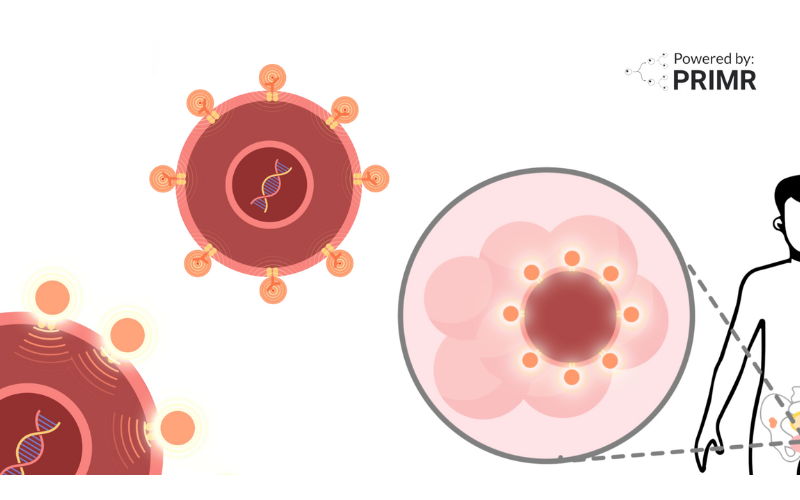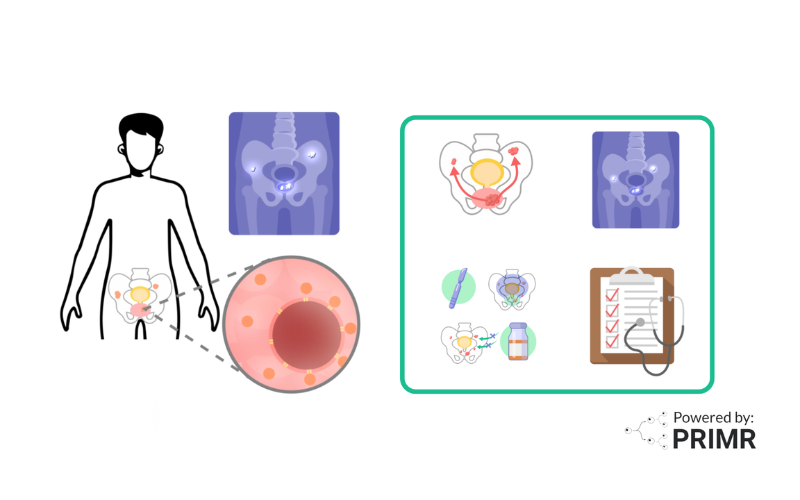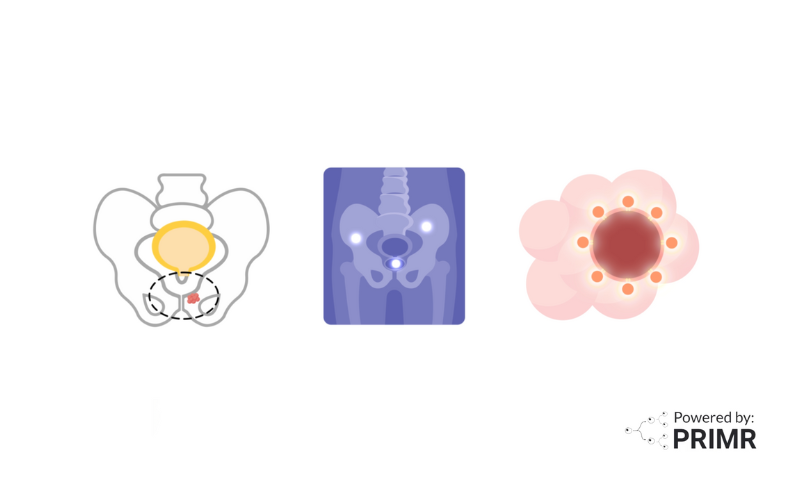What is Cancer Genomic Testing? An Overview for Patients by an Oncologist.

By: David Grew MD MPH
"By identifying genetic mutations, we can create a treatment plan that's much more personalized to the individual’s cancer.
∗ ∗ ∗
As a radiation oncologist, I have the privilege of helping my patients navigate the complexities of cancer treatment. One of the most transformative advancements in cancer care over the last few decades is the ability to tailor treatment based on the unique genetic makeup of a patient's cancer. This process is known as cancer genomic testing. By understanding the unique genetic signature of cancer, we can offer more precise treatments that may improve outcomes and quality of life. In this blog, I will give you an overview of what cancer genomic testing is, when it is used, how it’s done, and why it might be helpful for you or a loved one facing cancer.
Imagine this scenario: A patient comes for consultation to discuss optimal treatment for his prostate cancer. He has kids in college, and while he doesn’t want to do unnecessary treatment, he is highly motivated to maximize his chance of cure. By looking at the genetic profile of the tumor, we can identify an option to either de-escalate treatment to avoid side effects, or possibly intensify treatment to improve the chance of cure. Further, we may find he’s eligible for a breakthrough clinical trial. This is where genomic testing could make a meaningful difference.
What is Genomic Testing for Cancer?
Genomic testing is a process that examines the DNA of cancer cells to identify specific genetic mutations or changes that may be driving the cancer’s growth. Unlike regular tests that focus on the body's normal cells, genomic testing hones in on the cancer cells themselves. This helps us understand how cancer behaves at a molecular level.
By identifying genetic mutations, we can create a treatment plan that's much more personalized to the individual’s cancer. For instance, some cancers have mutations that make them more responsive to certain treatments, while others may require more targeted or experimental therapies. Understanding these genetic changes helps us predict how a cancer might behave and which treatments will be most effective.
When is Genomic Testing Used?
Genomic testing is most often used in several key situations:
At the time of diagnosis: If you're newly diagnosed with cancer, genomic testing helps doctors understand how the cancer is likely to behave. This allows us to create a treatment plan based on the specific genetic changes present in your tumor.
When treatment isn’t working: If your cancer isn’t responding well to standard treatments, genomic testing can help identify new treatment options. This might involve targeted therapies that specifically address the genetic mutations in your cancer.
When cancer comes back: For patients whose cancer has returned after treatment, genomic testing can help us understand whether new genetic changes have occurred. This can guide us in choosing a new treatment plan or exploring alternative options, such as clinical trials.
For clinical trials: Many clinical trials focus on genetic mutations to determine which treatments might work best. If you’re considering a clinical trial, genomic testing can help identify whether you qualify for a trial based on the genetic profile of your cancer.
How is Genomic Testing Done?
Genomic testing is typically performed using a sample of your cancerous tissue, often taken from a biopsy or surgery. The tissue is sent to a specialized laboratory where experts analyze the DNA for any mutations or alterations. These genetic findings are then compiled into a report, which is sent to your oncologist for review. Based on the results, we can discuss any potential new treatment options or clinical trials that may be available to you.
When Might Your Doctor Recommend Genomic Testing?
There are several situations where your doctor might suggest genomic testing:
Understanding your cancer better: If you're newly diagnosed and want to know more about how your cancer is likely to behave, genomic testing can offer critical insights.
Exploring new treatment options: If your current treatment isn’t working or the cancer has returned, genomic testing can identify new treatment options or clinical trials that could be a better fit.
Clinical trial eligibility: Some clinical trials target specific genetic mutations in cancers. Genomic testing helps determine if you’re eligible for these trials.
Managing cancer recurrence: If your cancer has come back after treatment, genomic testing can help identify changes that might explain the recurrence, leading to more effective treatments.
A Key Role in Cancer Research and Hope for the Future
Cancer genomic testing is playing a pivotal role in cancer research, as it can identify trends and patterns that researchers can study. For example, if a specific genetic mutation is found to be common across different types of cancers, it could lead to the development of new treatments targeting that mutation. This research is invaluable in moving towards more effective, less toxic cancer therapies.
—
Genomic testing is revolutionizing the way we approach cancer treatment by providing a deeper, more personalized understanding of a patient’s cancer. It offers hope for more targeted therapies, clinical trial opportunities, and potentially better treatment outcomes. While not every cancer patient will require genomic testing, it is an essential tool for many, and it continues to advance cancer care worldwide. As researchers uncover more about how cancer works on a genetic level, the future of cancer treatment looks brighter.
If you’re a cancer patient or caregiver, you may want to have a discussion with your oncologist about whether genomic testing is right for you. It might just be the key to finding a treatment that works for your unique situation.
Remember, cancer treatment is no longer a one-size-fits-all approach. With the help of advances like genomic testing, we are moving closer to individualized treatments, giving hope to more patients than ever before.
For more detailed information on genomic testing and its applications in cancer care, watch the video we created here.
Hire PRIMR to create custom video content for your clinical trial or medical product today.
FAQs:
What is cancer genomic testing and how does it improve treatment?
Cancer genomic testing examines the DNA of cancer cells to identify specific genetic mutations driving the cancer's growth. This process helps oncologists understand how cancer behaves at a molecular level, allowing for more personalized treatment plans. By identifying genetic changes, doctors can predict cancer behavior and determine which treatments will be most effective, potentially improving outcomes and quality of life for patients.
When should a cancer patient consider genomic testing?
- Cancer patients may consider genomic testing in several situations:
- At the time of initial diagnosis
- When standard treatments are not effective
- If cancer returns after treatment
- When exploring clinical trial eligibility
Genomic testing can provide crucial insights into cancer behavior, identify new treatment options, and determine eligibility for targeted therapies or clinical trials.
How is cancer genomic testing performed and what can patients expect?
Cancer genomic testing is typically performed using a sample of cancerous tissue from a biopsy or surgery. The tissue is sent to a specialized laboratory where experts analyze the DNA for mutations or alterations. Results are compiled into a report for the oncologist to review. Patients can expect to discuss potential new treatment options or clinical trials based on their genomic testing results
Other Posts

Nuclear Medicine: PSMA Treatment Explained from a Doctor’s Perspective

Nuclear Medicine: PSMA Imaging and Its Impact on Prostate Cancer Care
